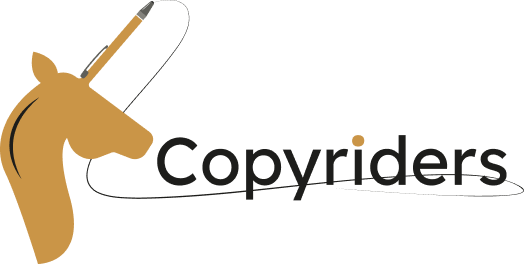If you’ve ever wondered why certain emails get immediate responses while others are met with radio silence, the secret lies in copywriting.
The LAST thing you want is to screw up a deal or get fired because your emails are poorly written.
“The pen is mightier than the sword.”
Your emails have the potential to influence, persuade, and, in the business realm, make or break deals. If crafted meticulously, each email can solidify your standing within your organization and in your business dealings.
To give some context, according to Zippia, 347.3 billion emails are sent daily!
So through the best email copywriting tips, you’ll be able to crush it in the corporate setting. Let’s see how:
1. The All-Important Subject Line
Your subject line is the first thing the recipient sees, making it your first chance to grab their attention. Always ensure that your subject lines:
– Are direct and to the point. A vague subject line is likely to be overlooked or trashed.
– Contain a Call To Action (CTA) if necessary. This prompts immediate attention.
For example, let’s say that you need to book a meeting with someone. In that case, “Request for meeting” is self-explanatory and implies a future action. On the other hand, If something’s time-sensitive, you can start the subject with “URGENT:” – but only use it occasionally. Overusing the term might make your emails seem less urgent over time.
Remember, the key is to make your recipient want to click on your email amongst the sea of others.
2. Starting Off Right
We all know the typical email that starts with “I hope this email finds you well”.
Ths is not only overused but might also delay getting to the meat of the message. Instead, get straight to the point. Your recipients, often swamped with tasks, will appreciate it.
In fact, LifeWire reports that the average office worker receives 121 emails per day!
3. Addressing the Recipient
It might seem like a minor detail, but addressing someone correctly can have significant implications. Always default to the full name unless you’re sure about the preferred nickname. A wrong salutation can be seen as a lack of attention to detail or, even worse, disrespect. One time, one of our team members sent an email saying “Chris” instead of “Christopher” and it almost cost our agency a huge business deal. This was the CIO and CTO of a Fortune 500 company who got mad and replied:
“My name is Christopher, not Chris”.
Oooopss….
Such mistakes are easily avoidable and showcase the importance of getting the basics right.
4. Signing Off
Your email’s conclusion leaves a lasting impression. Always express gratitude with a simple “thank you.” It’s courteous and acknowledges the recipient’s time. Sign off with formal and universally accepted closings like “Regards” or “Sincerely.” It keeps the tone professional and appropriate for business correspondence.
5. The Power of P.S.
The postscript, or P.S., is a classic copywriting tool. It captures attention and often conveys a critical piece of information or a final call to action. If you have a vital message or request that needs emphasis, place it here. For instance, “P.S: Please sign the contract before XXX date so our team can be ready” reinforces the action required and its urgency.
Conclusion: Effective corporate email writing is a mix of clarity, precision, and courtesy. Every email is an opportunity – to communicate, persuade, and drive action.
So get it right!
If you are looking for consultancy on corporate communications, don’t hesitate to reach out to our team.
Contact us here

